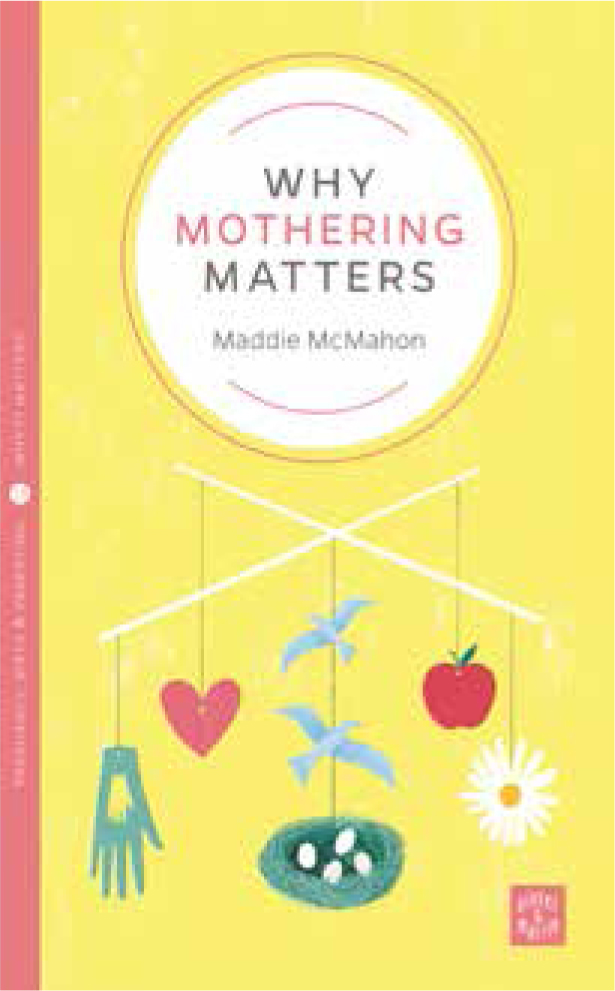Book Review

Maddie McMahon has captured the essence of the ultimate feminist issue of childbirth and motherhood in her nurturing and eloquently written book, Why Mothering Matters. As a doula and a mother, McMahon has spent time observing and studying women as they travel this physically and psychologically transformative path and deliberates how the role of the mother is societally undervalued in the 21st century. The book looks at traditions from across the world and makes balanced suggestions for improving the support and value placed on women. As well as considering the role of the mother, McMahon looks at the many other tasks that women are expected to undertake, the ways in which they influence a woman's identity and the way that society values or undermines a woman's worth.
My favourite chapter was ‘The chemical soup of motherhood’, in which the author considers an area of parenting that is often left unmentioned. As pregnancy hormones begin to work their magic, many women and families have little or no understanding of the intense changes happening as the mother's brain is rewired. With the birth of their child, the changes continue. Also discussed is the importance of breastfeeding and the intricate, complex composition of breastmilk. McMahon discusses the flow of oxytocin and the protective properties for mothers and babies that make breastfeeding so much more than just fulfilling a nutritive requirement.
Register now to continue reading
Thank you for visiting British Journal of Midwifery and reading some of our peer-reviewed resources for midwives. To read more, please register today. You’ll enjoy the following great benefits:
What's included
-
Limited access to our clinical or professional articles
-
New content and clinical newsletter updates each month

